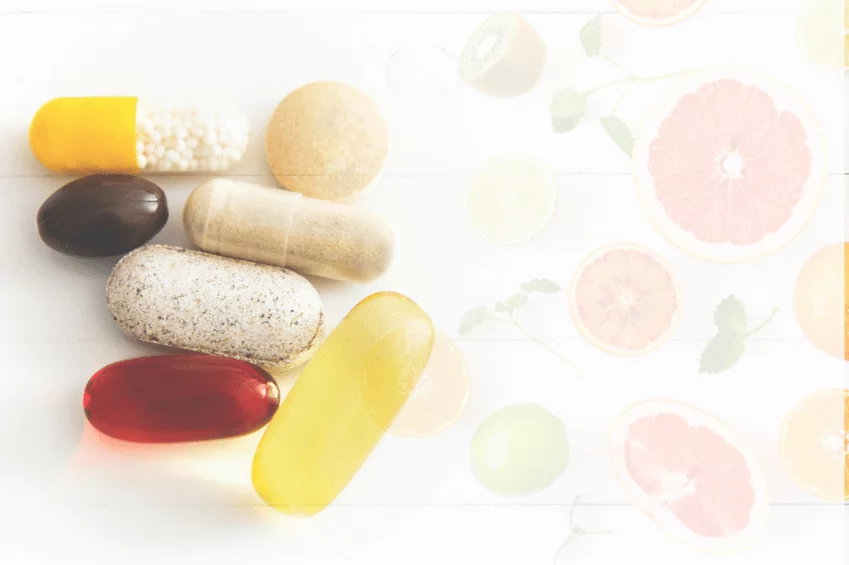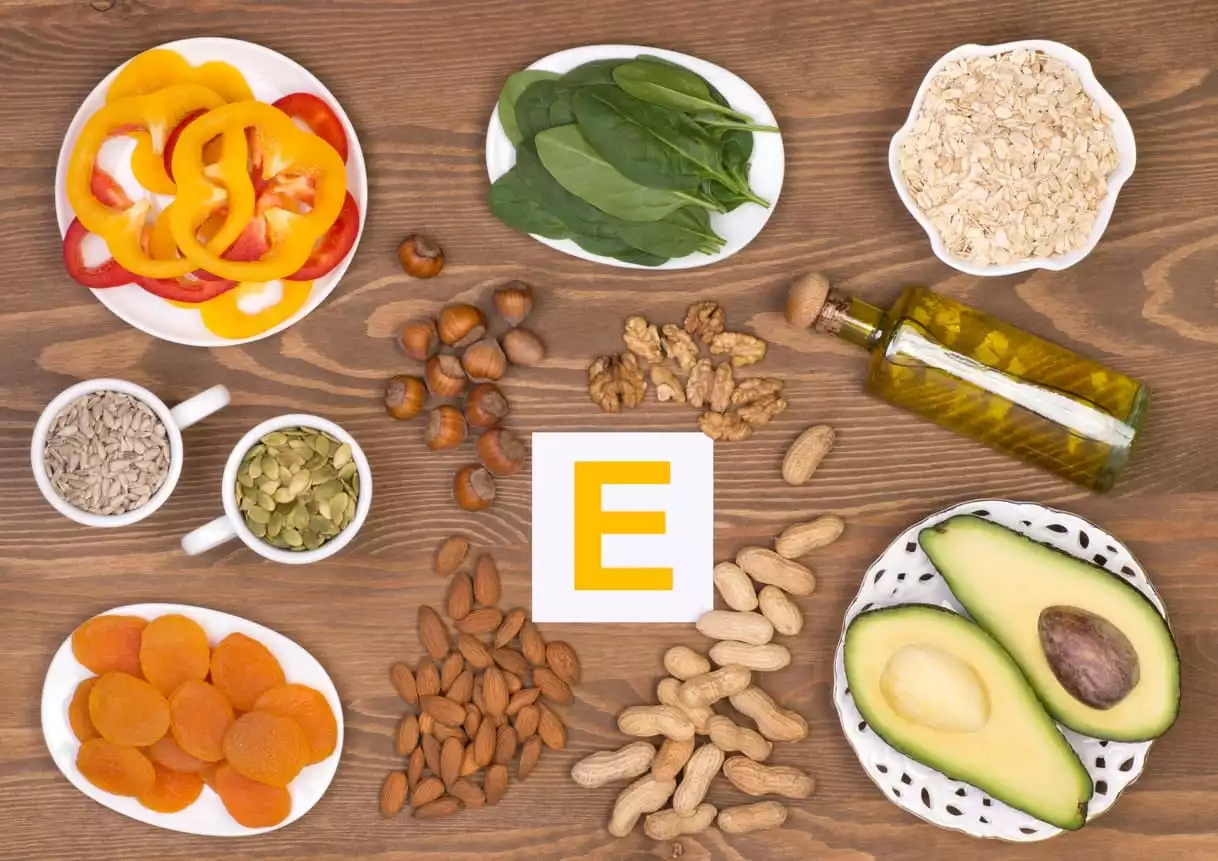
It’s summertime, and the livin’ is easy – at least, it is if you’re healthy. Here’s what you should know about taking essential Vitamins for summer.
Taking care of yourself so you can enjoy the beautiful weather is important. One of the best ways to do that is by ensuring you get all of your daily nutrients, minerals and vitamins for summer.
Of course, achieving this goal through diet is best, but busy lives and summer activities can take a big hit on even the cleanest eaters. Luckily, supplementation fills the gaps and keeps you covered.
This summer, we want to help you be at your very best.
That’s exactly why we put together this list of essential Vitamins for summer that every patient should take.
From Vitamin C to the “sun vitamin”, Vitamin D, this is what you need to know to stay well.
Essential Vitamins for Summer Health
There are many ways to stay healthy during the summer months – and it’s important to! You don’t want to miss out on those beach days, family vacations, and pool parties!
One way to maintain that health is by taking these 4 essential Vitamins for summer:
- Vitamin C
- Vitamin E
- Vitamin A
- Vitamin D
These essential Vitamins will keep your body healthy, promote metabolism and digestion, and strengthen your immune system.
Lets take a closer look at each of these Vitamins…
Vitamin C
Vitamin C (L-ascorbic acid) is an antioxidant found in everything from oranges to leafy greens and even the basic white potato.
According to the National Institute of Health (NIH), it plays a direct role in collagen production, neurotransmitter function, and overall immune health.
That’s probably why most patients are so familiar with taking extra Vitamin C when they experience a cold or flu.
Winter often brings cold weather, and with it, head colds, but summer’s extreme warm temperatures can have the same effect.
In fact, summer is the second most common time period for rhinotracheitis and sinus infection outbreaks in areas where humans meet and mingle frequently.
For the average adult, a daily supplementation dose somewhere between 40 mg (for women) and 90 mg (for men) works best.
However, some patients may need more Vitamin C – including people who are pregnant, lactating, or recovering from surgeries, as well as those who smoke.
The NIH also recommends that patients who smoke take an extra 35 mg of Vitamin C per day as smoking strips the body of this essential nutrient at an increased rate.
Vitamin E
Vitamin E is another one of the most important Vitamins for summer.
This is a fat-soluble vitamin found in foods like eggs, meat, and tofu. It is also found in most fruits and vegetables, albeit in lower amounts. It comes in many forms, but the most commonly found in our North American diet is γ-tocopherol.
In the body, Vitamin E acts as an antioxidant, helping your liver and the rest of your body clear free radicals and toxins.
Free radicals, cells that contain too many electrons, can genetically damage your body and have been linked to many diseases as well as traditional signs of aging.
In-vitro studies like this one have also demonstrated a link between immune function and Vitamin E deficiency, including how fast patients heal and how likely they are to be diagnosed with cancer.
What makes it so important in summer?
Primarily, Vitamin E protects your skin from the harmful effects of the sun. It may lessen the likelihood of skin damage severe enough to cause cancer. However, it can also help you recover from a minor sunburn faster with fewer symptoms.
That’s great news for everyone!
As for how much you should take, the recommended daily allowance is around 1,000 mg per day for adult patients.
Children’s dosing exists on a spectrum; check with your pharmacist before you give any dose of Vitamin E to little ones.
Vitamin A
Like Vitamin E, Vitamin A is a fat-soluble compound and another one of the most important Vitamins for summer health.
However, it has a much, much more complex 86-characters-long scientific name.
That’s why most people know it by its shorter name, Retinol or Retinal. It is critically important in the human body; in fact, it forms the entire basis of vision in humans and most animals.
Without it, we would be essentially blind.
Most people get plenty of Vitamin A from meats, fish, carrots, sweet potatoes, and green leafy vegetables. However, it is possible to be deficient either mildly or severely.
Mild deficiencies often manifest as vision problems, including difficulty seeing at night and difficulty reading.
Taking Vitamin A in summer may prevent vision damage from the sun, but it can also help you to see more clearly and brightly.
That’s a good thing, especially when warm summer nights call for drinks and friends on the beach or long, lazy evenings in the backyard.
Adult patients should aim for a recommended daily intake of around 700 to 900 micrograms. If you’re nursing or pregnant, doctors recommend raising that intake to somewhere between 1,200 and 1,500 micrograms instead.
Vitamin D
Vitamin D is a secosteroid substance most commonly referred to in the summer; that’s because your own body produces it when exposed to sunlight.
In fact, the human body requires sunlight in order to generate this Vitamin. This is exactly why winter produces mild deficiencies in patients living in the northern hemisphere (including the northern United States, Canada, and Alaska).
This is also why most health organizations recommend that patients who live in the north supplement with extra Vitamin D from birth.
Vitamin D comes in two main formats, cholecalciferol (D3) and ergocalciferol (D2). For supplementation purposes, formulas containing both is best because it provides the most robust supplementation.
It is also found in most meats, fish, eggs, tofu, cheese, and milk, where it is added during production to increase health.
Why do you need to take Vitamin D in summer?
The best reason to take this in the summer is that it directly contributes to systemic health and strength.
Alongside making your bones stronger, Vitamin D is one of the most important Vitamins for summer because it also boosts your immune system, increases your ability to absorb phosphorus and calcium, and makes it easier for your body to develop good endurance.
Whether you’re spending more time at the beach or heading out for some extreme sports, it will help you stay well.
The recommended daily intake of Vitamin D for adults is somewhere between 600 and 800 IUs per day.
Pregnant, nursing, and infirm individuals often need to aim for the higher end of this spectrum. Healthy people living in sunny climates may need less.
Because calcium and vitamin D each impact absorption of the other substance, it’s best to take them together at the same time.
In addition to these four important Vitamins for summer, there are other substances summer sand bunnies should take. Ask your pharmacist about adding B-Vitamins (for energy), potassium and magnesium (essential electrolytes) and Vitamin K (critical in the production of red blood cells) to your supplement list.
If you’re feeling a little overwhelmed by all the acronyms, don’t forget it’s perfectly fine to just go with a standard multivitamin that fits your profile.
Your pharmacist can help you find the right types of Vitamins for summer, and all-year – just call!

 info@burtsrx.com
info@burtsrx.com



